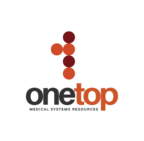From Contract Dependence to Local Empowerment: Rethinking LGU Strategies for Medical Waste
Most local government units (LGUs) in the Philippines manage medical waste the same way: they contract third-party haulers to collect and dispose of it. On paper, this system seems efficient. It allows hospitals, rural health units, and treatment centers to focus on patient care while outsourcing a highly technical responsibility.But in practice, this heavy reliance on external contractors leaves LGU-operated facilities exposed to cost volatility, compliance risks, and operational vulnerabilities. When contracts fail, when disasters strike, or when collection is delayed, untreated medical waste piles up — compromising infection control and public trust.
It is time to rethink this model. For LGUs that want to be both compliant and resilient, the way forward is not deeper dependence on contractors, but local empowerment through onsite waste treatment.
The Limits of Contract Dependence
Third-party hauling has become the default solution for many LGUs, but it carries hidden costs:
Budget Drain – Hauling fees escalate over time, locking LGUs into recurring expenses that consume health budgets.
Compliance Gaps – LGUs remain accountable under RA 6969, RA 9003, and other laws, even if a contractor mishandles waste. Liability cannot be outsourced.
Service Disruptions – Natural disasters, fuel shortages, or contract disputes can halt hauling operations, leaving facilities with dangerous waste backlogs.
Limited Autonomy – LGU hospitals and health facilities have little control once waste leaves their gates, yet they bear the reputational risks of any lapses.
In short, contract dependence weakens rather than strengthens LGUs.
The Case for Local Empowerment
Onsite treatment gives LGUs back control, accountability, and flexibility. Instead of waiting for trucks to arrive, facilities can neutralize infectious waste immediately, ensuring both compliance and safety.
Benefits of onsite empowerment include:
Stronger Infection Control
Waste is sterilized at source, reducing risks of contamination inside hospitals and health units.Budget Predictability
Investment in onsite systems reduces recurring hauling fees and shields LGUs from contract price hikes.Regulatory Assurance
By treating waste directly, LGUs meet national standards without depending on external compliance.Crisis Readiness
Facilities remain operational during disasters, outbreaks, or disruptions, because waste treatment is built-in.
This is not just a technical shift — it is a governance upgrade that aligns with LGU priorities of accountability, resilience, and sustainability.
Tesalys Autoclaves: A Practical Tool for Autonomy
Globally, hospitals and LGUs are moving toward onsite autoclave systems that combine safety, efficiency, and sustainability. In the Philippines, One Top Medical Systems Resources (OTMSR) brings this solution closer through Tesalys medical waste autoclaves.
Tesalys systems are designed for real-world facility needs:
Compact and Scalable – Suitable for both large hospitals and smaller rural health units.
Fast and Effective – Sterilizes infectious waste in under an hour using proven steam technology.
Eco-Friendly – Avoids the harmful emissions of incineration, aligning with environmental laws.
Simple to Operate – Staff can be trained quickly, ensuring seamless integration into daily routines.
With Tesalys autoclaves, distributed by OTMSR, LGUs can replace contract dependence with facility-level autonomy that keeps waste management under their direct control.
Governance, Compliance, and Public Trust
At the heart of medical waste management is not just compliance — it is governance accountability. LGUs cannot afford to explain to their constituents that medical waste overflowed because a contractor failed to collect on time. Communities expect safe, continuous, and transparent handling of hospital waste, especially during crises.
By shifting to onsite treatment, LGUs demonstrate leadership:
They comply with RA 6969, RA 9003, and RA 8749 not as minimum requirements, but as active commitments.
They reduce dependence on volatile contracts and instead build predictable, internally managed systems.
They reinforce public trust by ensuring that hospitals and health units remain safe, clean, and compliant.
One Top Medical Systems Resources: Partner in Local Empowerment
One Top Medical Systems Resources is not simply a distributor. It is a partner in helping LGUs and their hospitals take control of waste management. Through Tesalys autoclaves, OTMSR enables facilities to treat waste onsite, strengthen compliance, and reduce long-term costs.
With its technical support and tailored deployment, OTMSR helps LGUs move beyond dependency and toward genuine local autonomy in waste governance.
A Call to Action for LGU Hospitals and Facilities
LGUs cannot afford to remain dependent on external haulers for one of the most critical aspects of hospital safety. Contract dependence creates vulnerability; local empowerment creates resilience.
For mayors, municipal health officers, and hospital administrators, the choice is clear: shift from dependence to autonomy by investing in onsite waste treatment systems.
With Tesalys autoclaves, distributed by One Top Medical Systems Resources, LGU hospitals can control compliance, safeguard safety, and stabilize costs — proving that resilience begins with responsibility at the local level.



